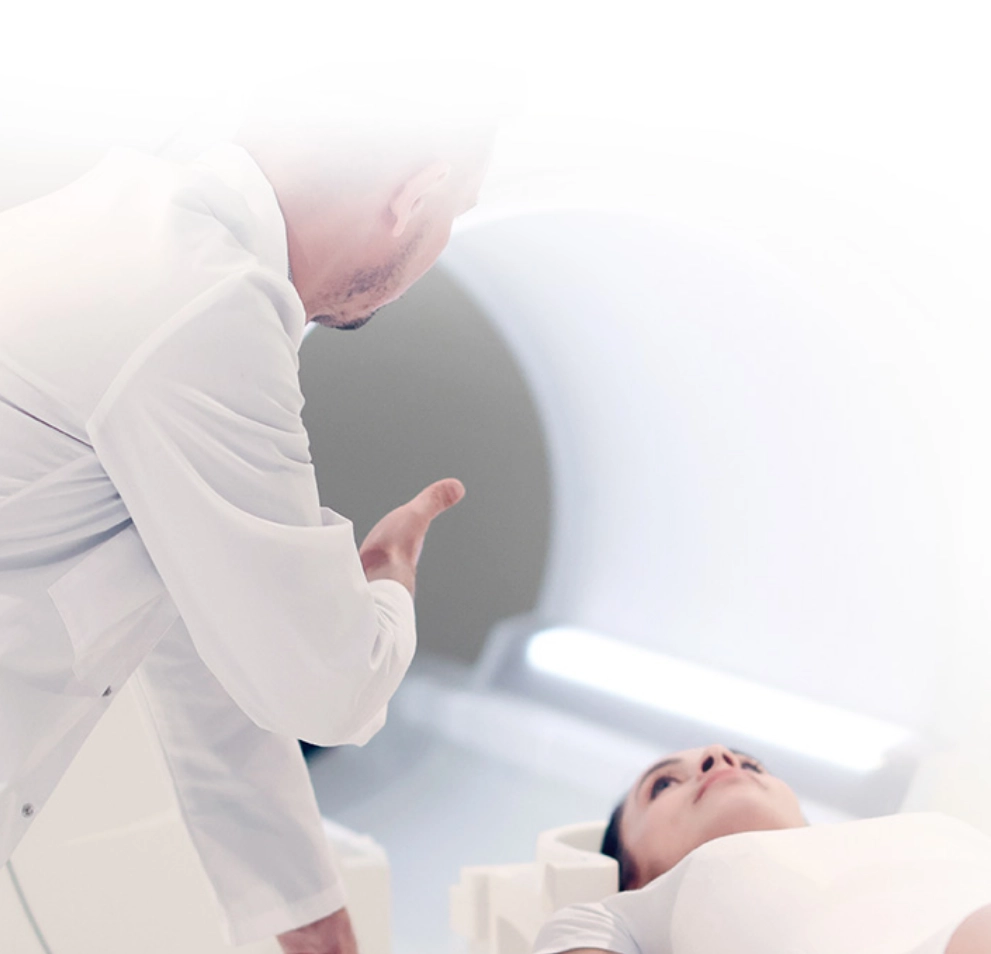OVERVIEW
Agility Synergy is one of the advanced linear accelerators, and it is specially designed to meet modern radiation therapy demands. Agility Synergy delivers radiation with enhanced precision and minimizes damage to nearby healthy tissues.
HCG was the first hospital in India to have the Agility Synergy linear accelerator. This linear accelerator comes with 3D image guidance, which helps radiologists visualize and target the tumor precisely. This precision in radiation delivery translates to multiple patient benefits like fewer treatment-related complications, faster recovery, and a better quality of life after the treatment.
ADVANTAGES OF RADIATION TREATMENT WITH AGILITY SYNERGY
Agility Synergy increases the speed of radiation delivery and thereby supports higher-dose radiation therapies.
The treatment duration is significantly shorter.
Intelligent beam-shaping technology supports consistent monitoring and better treatment control throughout the session.
Agility Synergy helps reduce damage to the surrounding healthy tissues and thus reduces the risk of secondary malignancies.
The enhanced precision of this platform also supports a faster recovery among patients.
